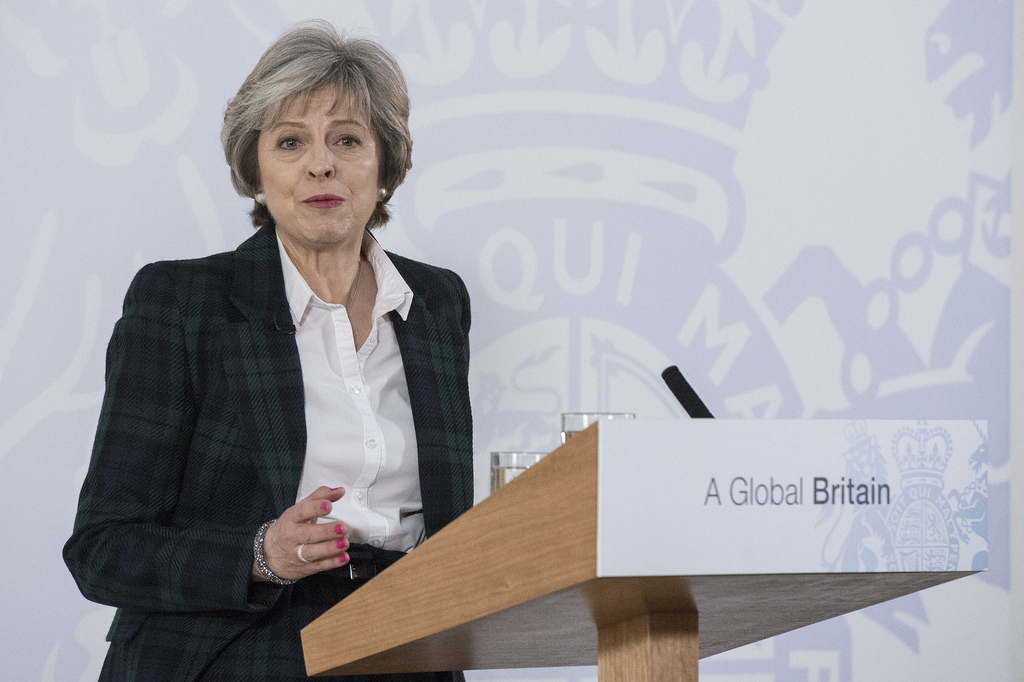
Image: Jay Allen/Crown Copyright.
The new industrial strategy launched by prime minister Theresa May today is to review the lowest cost way of decarbonising the economy, but has appeared to lock out the majority of renewables.
The strategy, published by the Department for Business, Energy and Industrial Strategy, comprises a 132-page document that outlines several areas which the government sees key to stimulating more sustainable growth in the UK economy.
Central to this is a pledge to review the opportunities available to “reduce the cost of achieving our decarbonisation goals in the power and industrial sectors”.
However the document goes on to clarify that the review will only cover three topics, namely support for greater energy efficiency, the use of “existing instruments” to support further cost reductions in offshore wind, and collaboration with Ofgem to “ensure markets and networks operate as efficiently as possible”.
There is no mention of solar PV or onshore wind – forecast by the government’s advisory body The Committee on Climate Change to be the cheapest forms of low-carbon power by the fifth carbon budget reporting period – in the entire document.
This would suggest that the government remains committed to its curtailment of support for established renewables technologies unless further support is to be unveiled in the upcoming Emissions Reduction Plan (ERP).
The ERP was originally due to be published prior to the end of 2016, however this was then pushed back until early 2017. Today’s industrial strategy document placed a timeline for the plan’s publication as “in 2017” in a possible suggestion that this timeline could slip further behind originally scheduled.
While BEIS has yet to respond to requests for comment by Solar Power Portal on this matter, shadow climate change minister Barry Gardiner said any further delays to its publication would be “a disgrace”.
Disgrace
The Legislation stipulates the plan should be published "as soon as reasonably practicable" after the Carbon budget was set in 2011 https://t.co/yHnN0owlE4— Barry Gardiner (@BarryGardiner) January 23, 2017
Any lock-out of solar PV would also seemingly run against suggestions by climate change minister Nick Hurd before the BEIS select committee earlier this month that the government was “thinking through” ways to support established renewables through to subsidy-free deployment.
